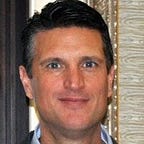Leaders Who Read, and the Books That Helped Them Succeed
President Harry S. Truman once said, “Not all readers are leaders, but all leaders are readers.”
Indeed, one of the few common denominators among successful business leaders from all eras and backgrounds is a shared love of reading.
Berkshire Hathaway’s powerhouse duo
Warren Buffett of Berkshire Hathaway, Inc., is one of the wealthiest people in the world. He’s also one of the most dedicated readers, spending an estimated 80 percent of his day poring over the written word in the form of books, news sources, business reports, and more. One of the classics he recommends is The Intelligent Investor, a 1949 work by Benjamin Graham that Buffet calls the best book on investing ever written.
Since the beginning of his upward trajectory as a CEO, Buffett has dedicated himself to consuming large quantities of information. His widely quoted recommendation to others is to go to bed at night “smarter” than they were when they got up that morning.
Buffett, who suggests a reading diet of 500 pages a day, has also noted that he thinks as he reads. He cites this practice as yielding the best and most accurate perspectives on any business issue under his consideration. It prompts him to be far more deliberative and intentional and far less impulsive in any decision he makes. Knowledge and understanding, Buffett has said, build up “like compound interest.”
Charlie Munger, Buffett’s right-hand man and long-time vice chairman at Berkshire Hathaway, once told a group of law students that the people who achieve the most in life aren’t necessarily always the most naturally intelligent or even the most hard-working, but “they are learning machines.” It’s this wide-ranging curiosity, this hunger for new information, insights, and ways of understanding the world, that sets the ultimately successful leader apart from those who may linger in the middle ranks for their entire careers, held back by their lack of inquisitiveness about the world around them.
The maverick entrepreneur who followed the advice in a book
Billionaire entrepreneur, Shark Tank investor, and Dallas Mavericks owner Mark Cuban credits a large part of his success to his habit of reading four to five hours a day.
Cuban, who reads as much and as widely as he can, begins his day with the news. He takes in the Dallas Morning News, the Washington Post, the Economist, and more than half a dozen other business-focused and general publications. Then it’s on to newsletters focused on technology, a field in which he is heavily invested and in which he continues to work to educate himself as much depth as possible. Cuban has said that this investment of his time and energy is what helps him maintain the edge over his competition.
Cuban’s personal recommended reading list concentrates on the books he read years ago as a new entrepreneur. At the top of this list is a book that came out in the 1980s, but whose advice is still relevant today: Cashing in on the American Dream: How to Retire at 35 by Paul Terhorst. The author, who started as an accountant, recommends spending a maximum of $50 per day (that would be more than $100 in today’s terms) to save $1 million to retire early. Terhorst’s advice started Cuban off on his journey of living on macaroni and cheese and driving a dilapidated old car as he got his fledgling company MicroSolutions off the ground.
Mark Cuban has also recommended contemporary titles on politics, current events, science, mathematics, and more.
From fantastic fiction to real-life conquest of space
Tesla and SpaceX CEO Elon Musk has noted that he learned how to build a rocket from reading books back home in South Africa. As the target of bullying attacks from other kids, Musk also drew personal inspiration from books of science fiction and fantasy. He has recommended books by science fiction great Isaac Asimov and fantasy master J. R. R. Tolkien, as well as contemporary works of non-fiction such as Structures: Or Why Things Don’t Fall Down by J. E. Gordon. Originally published in 1981, the book offers a fascinating layperson’s overview of the architectural design of buildings, bridges, aircraft, and much more.
Musk has told interviewers that he is also deeply into biographies, especially Walter Isaacson’s richly detailed books on Benjamin Franklin and Steve Jobs. Musk has said that while he enjoys the “romantic” element of reading traditional print books, his extensive travel schedule typically makes it more convenient to read on his iPhone.
Recommendations from innovation to imagination
There are hundreds of other excellent books on business strategy and a wealth of other subjects recommended by today’s most successful CEOs. For instance, Steve Jobs consistently praised How Will You Measure Your Life? by innovation expert Clayton Christensen and co-authors James Allworth and Karen Dillon. Current Apple CEO Tim Cook is a big fan of Competing Against Time: How Time-Based Competition Is Reshaping Global Markets by George Stalk, Jr. and Thomas M. Hout.
Plenty of other leaders also credit novels with opening their eyes to new ideas and expanding their imaginations. The Catcher in the Rye by J. D. Salinger is a long-time favorite of Bill Gates, while Kazuo Ishiguro’s The Remains of the Day is famously beloved by Jeff Bezos. In 2011, the Nobel Prize winner’s poignant novel was among the first books Bezos downloaded onto Amazon’s new Kindle Fire device.
